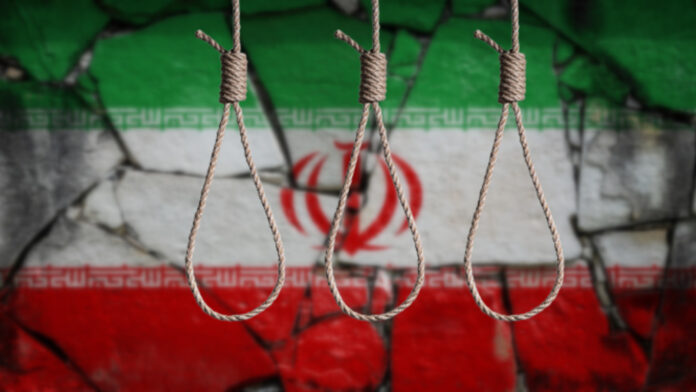
Core Insights
- Three men executed in Iran for alleged Mossad collaboration, marking the regime’s latest show of zero-tolerance for espionage.
- Executions linked to smuggling equipment reportedly used in a high-profile assassination, highlighting Iran’s ongoing shadow war with Israel.
- Legal experts and human rights advocates decry lack of due process, raising urgent questions about justice, transparency, and the weaponization of the death penalty in Iran.
By Samuel Lopez – USA Herald
TEHRAN, IRAN – The world awoke Tuesday to grim headlines: Iran had executed three men accused of collaborating with Israel’s Mossad spy agency. Their deaths, carried out publicly and swiftly, serve as a chilling reminder of the brutal methods the Islamic Republic employs to enforce internal discipline and wage its ongoing shadow war with Israel.
Iran’s judiciary, via the state-run Mizan news agency, announced that three unnamed men were hanged Tuesday after being convicted of collaborating with Mossad, the Israeli intelligence service. According to official reports, the trio allegedly smuggled equipment later used in an assassination. The identity of the assassination target remains undisclosed, a move that raises immediate red flags for legal observers and human rights advocates alike.
These executions are only the latest in a series of highly publicized punishments Iran has inflicted on alleged spies and saboteurs. Over the past decade, Iranian courts have convicted—and executed—numerous individuals accused of aiding Israel, often linking their crimes to the deaths of nuclear scientists or to sabotage intended to derail the country’s nuclear ambitions.
“The regime’s repeated use of the death penalty for espionage—without transparent trials—undermines every tenet of due process and international law,” said Tara Sepehri Far, a researcher at Human Rights Watch, in a statement condemning the executions.
Iran and Israel have been locked in a covert struggle for decades, that recently culminated into what is now being called ‘The 12-day War.’ This “shadow war” features sabotage, assassinations, and intelligence operations targeting nuclear infrastructure, military installations, and personnel on both sides.
In most democracies, even alleged spies are entitled to a public trial, defense counsel, and meaningful appeal. In Iran, secrecy shrouds the proceedings, and convictions often follow confessions reportedly extracted under duress or torture.
Iranian authorities routinely cite “national security” to justify expedited proceedings and closed-door trials, leaving scant room for independent verification of evidence or judicial impartiality. Human rights monitors say this pattern amounts to a systematic violation of the right to a fair trial as recognized under international law—including the International Covenant on Civil and Political Rights, to which Iran is a signatory.
Public executions in Iran are nothing new. The country consistently ranks among the world’s top executioners, second only to China, according to Amnesty International. But the political context of these particular executions is impossible to ignore.
The Iranian judiciary’s messaging is clear: espionage, particularly on behalf of Israel, will be met not with rehabilitation or prolonged incarceration, but with the irreversible finality of the gallows. In so doing, Iran positions itself as a regional bulwark against foreign interference—regardless of the human cost.
Unsurprisingly, the international reaction has been swift and severe. Human rights organizations, legal advocacy groups, and Western governments have all issued statements condemning both the executions themselves and the opaque process that preceded them.
The UN Special Rapporteur on the situation of human rights in Iran recently called for an immediate halt to executions in cases involving espionage, particularly where fair trial standards are not met. Legal scholars argue that such executions, carried out after closed trials and based on secret evidence, violate not only Iran’s obligations under international law but also fundamental principles of justice.
For those watching from afar, these executions are a sobering reminder of the fine line between law and raw state power. In Iran, the judiciary is frequently an instrument not just of justice, but of deterrence and control—a reality that leaves little hope for those caught in the crosshairs of the regime’s ongoing battle with Israel.
The men executed this week may remain nameless to the world, but their deaths highlight a brutal truth about Iran’s justice system: that in the name of security, the rights of the accused can be—and too often are—erased.
🔗 Follow USA Herald on X @RealUSAHerald


